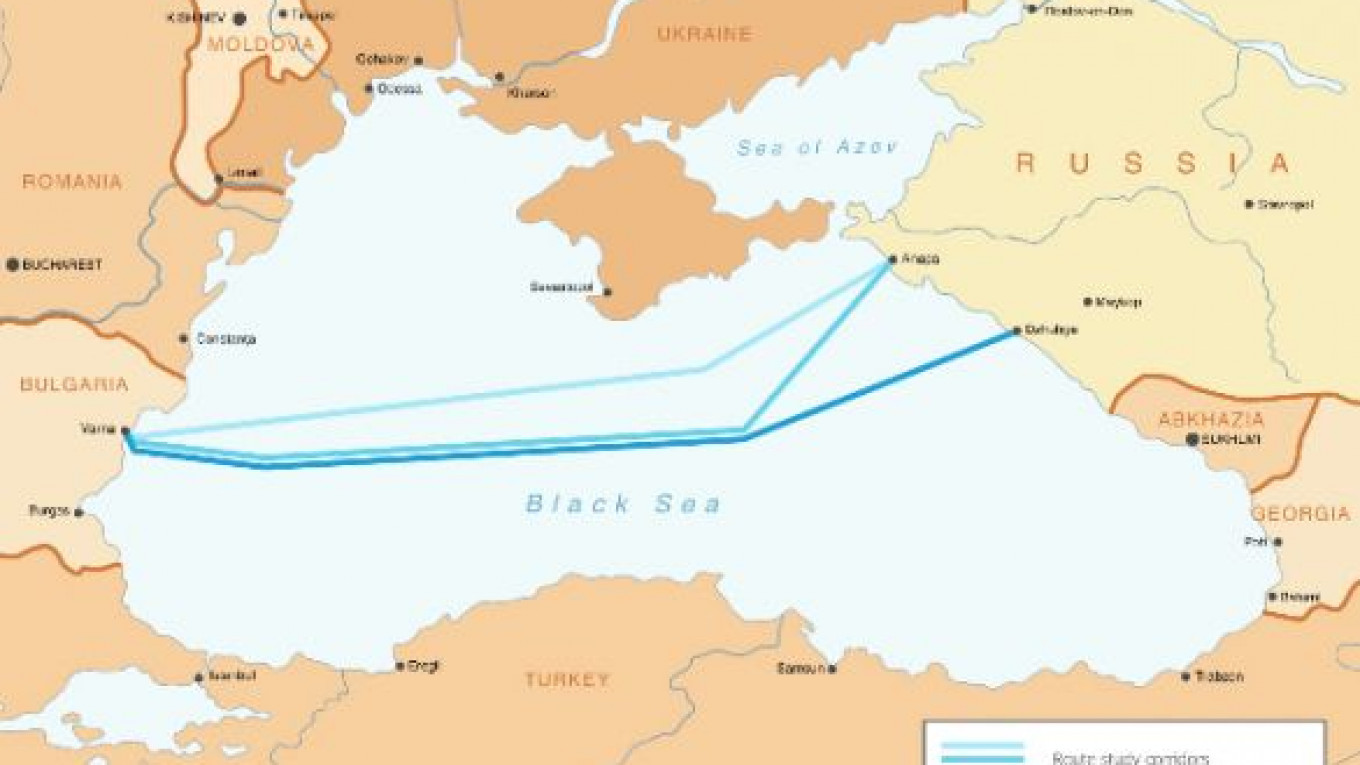Russia received permission to build a natural-gas pipeline to supply Europe through Turkey’s Black Sea waters, Prime Minister Vladimir Putin said Wednesday while meeting with Turkish Energy Minister Taner Yildiz.
“The South Stream project has entered a new phase: construction,” Gazprom CEO Alexei Miller said Wednesday at the government headquarters in Moscow. “The permission is final.”
Gazprom plans to build the first line of South Stream, with capacity to carry 15.5 billion cubic meters of gas a year, by the end of 2015, starting supplies soon after, Miller told reporters. The pipeline, which may cost 15.5 billion euros ($20 billion) is expected to eventually carry as much as 63 billion cubic meters of gas a year to the European Union, he said.
Russia also agreed to extend two gas supply contracts with Turkey to 2021 and 2025, Putin said.
The contracts signed with Turkey’s Boru Hatlari Ile Petrol Tasima, known as Botas, will allow Gazprom to boost exports to Turkey by 2 billion cubic meters next year, Miller said.
Gas supplies to Turkey are expected to reach 25.8 billion cubic meters in 2011, compared with contracted obligations of at least 24 billion, Gazprom said Wednesday in a statement.
South Stream may end in northern Italy after Gazprom decided against ending the link in Austria, Interfax reported Wednesday, citing deputy chief executive Alexander Medvedev.
Gazprom holds 50 percent in South Stream while Eni agreed to lower its share to 20 percent, selling 15 percent stakes to Electricite de France and BASF SE’s Wintershall unit.
A Message from The Moscow Times:
Dear readers,
We are facing unprecedented challenges. Russia's Prosecutor General's Office has designated The Moscow Times as an "undesirable" organization, criminalizing our work and putting our staff at risk of prosecution. This follows our earlier unjust labeling as a "foreign agent."
These actions are direct attempts to silence independent journalism in Russia. The authorities claim our work "discredits the decisions of the Russian leadership." We see things differently: we strive to provide accurate, unbiased reporting on Russia.
We, the journalists of The Moscow Times, refuse to be silenced. But to continue our work, we need your help.
Your support, no matter how small, makes a world of difference. If you can, please support us monthly starting from just $2. It's quick to set up, and every contribution makes a significant impact.
By supporting The Moscow Times, you're defending open, independent journalism in the face of repression. Thank you for standing with us.
Remind me later.






